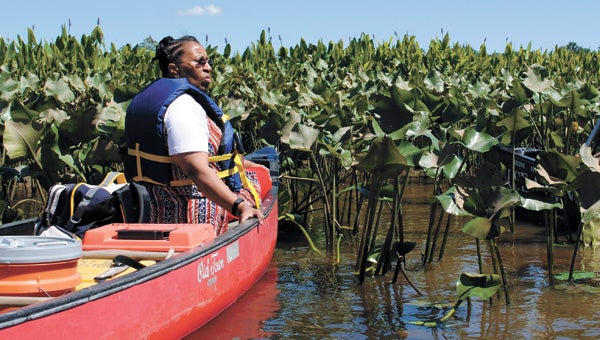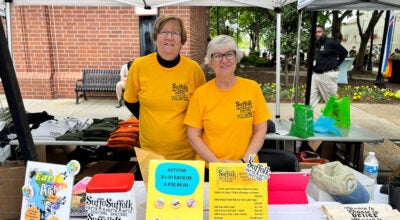Bay experience broadens teachers’ horizons
Published 8:54 pm Saturday, June 30, 2012

King's Fork Middle School special education teacher Mary Rollins was one of two Suffolk educators who participated in an educational program sponsored by the Chesapeake Bay Foundation. Rollins called the experience "empowering." (Chuck Epes photo)
Two Suffolk educators returned Friday from some picturesque regions of the Chesapeake Bay with a new understanding of the importance of protecting our waterways.
For Ann-Rene Challenger, a health science and chemistry teacher at Lakeland High School, paddling a canoe on the Mattaponi River was a highlight.
“The canoe trip gave a close view of the river,” Challenger said.
“We took (water quality) readings and compared them at different locations for the fish and plant and animal life, and turned around and compared that to the salt water to see what was good and what was bad, and the differences.”
The watershed teacher education program was led by Chesapeake Bay Foundation senior education Bill Portlock.
Overnight accommodation was at St. Margaret’s School and Port Isobel, a 250-acre island east of Tangier Island.
Mary Rollins, a special education teacher at King’s Fork Middle School, said she now better understands how people’s ordinary actions affect the bay, and how they can reverberate far beyond the watershed.
She was talking, for instance, about how when a car is washed in a driveway, the runoff eventually makes it into the bay.
“What we do here in our homes eventually winds up back there, and it eventually influences water quality not only here but everywhere,” she said.
“It also gets into the food and produce that we generate from this area.”
Rollins said she was interested to learn how science influences so many other things, including her main interest — history.
“When it comes to life, I tend to lean more toward history, and this particular trip showed me how I can incorporate science into every area of everyday life,” she said.
The newly acquired knowledge will help her better motivate kids to learn, she said.
“We really need to get them hooked on learning, because they don’t see how what they do affects everyone else,” she said.
Challenger and Rollins also gained exposure to the life of watermen, learning how that particular existence is closely tied to the health of the watershed and government regulations.
The program curriculum included sedimentation, algal blooms, how nutrients affect water quality, tidal freshwater wetlands, and using maps, charts and biological collecting gear, among other things.
Teachers were encouraged to think about how they can use their new knowledge of the bay to engage students.
“It was really an empowering experience,” Rollins said. “I would like for them (students) to get the same empowering experience and understand how they are affecting things outside.”






